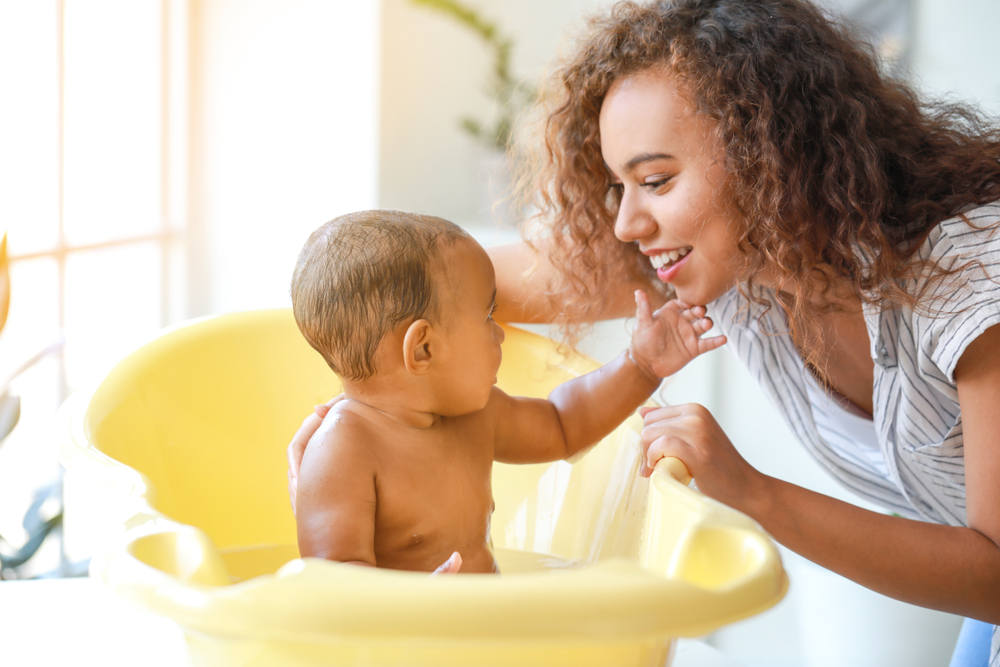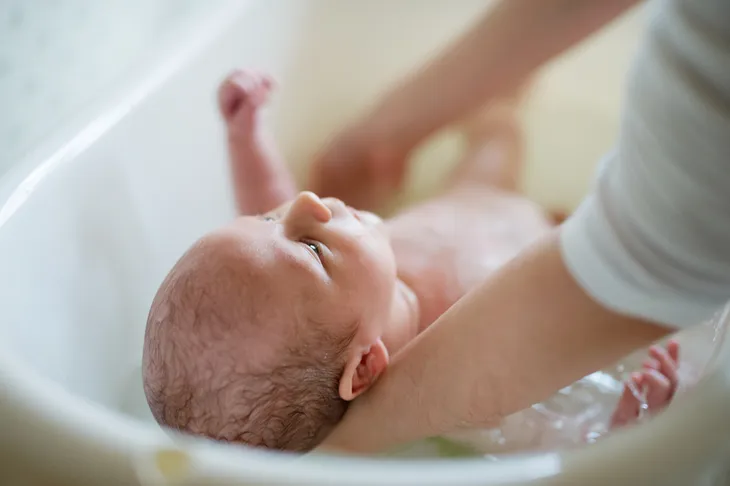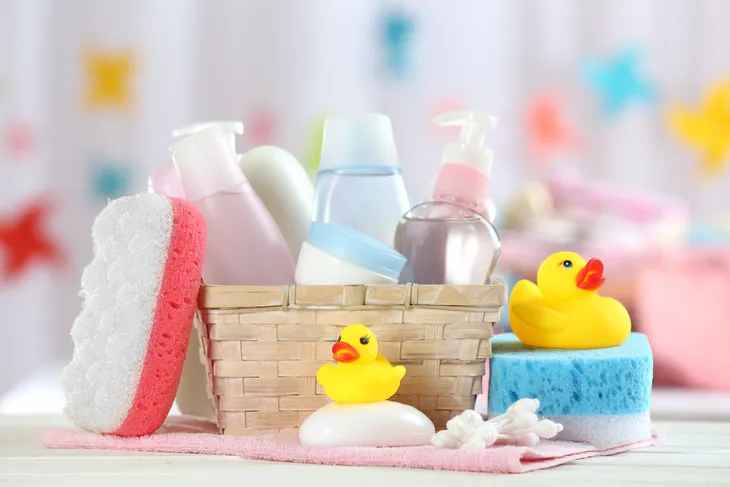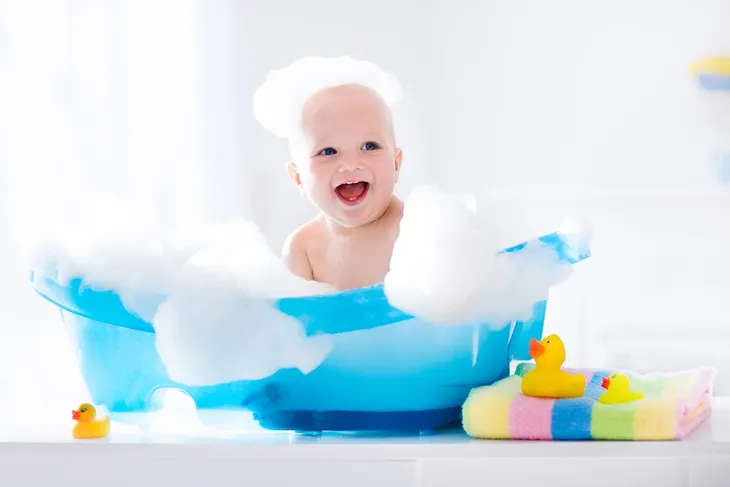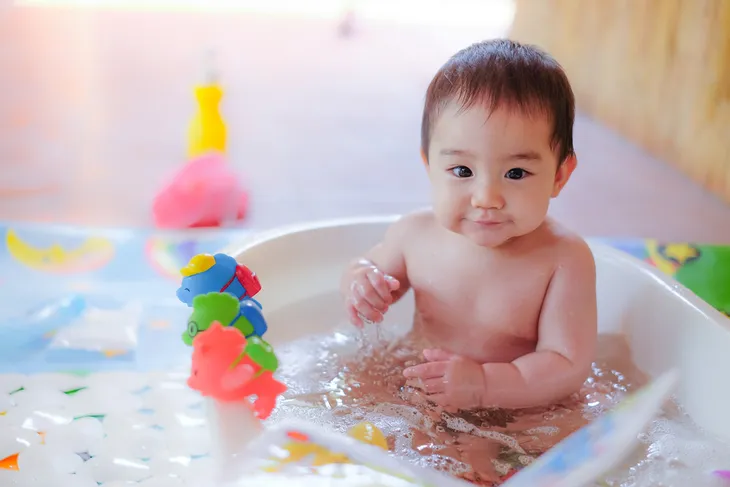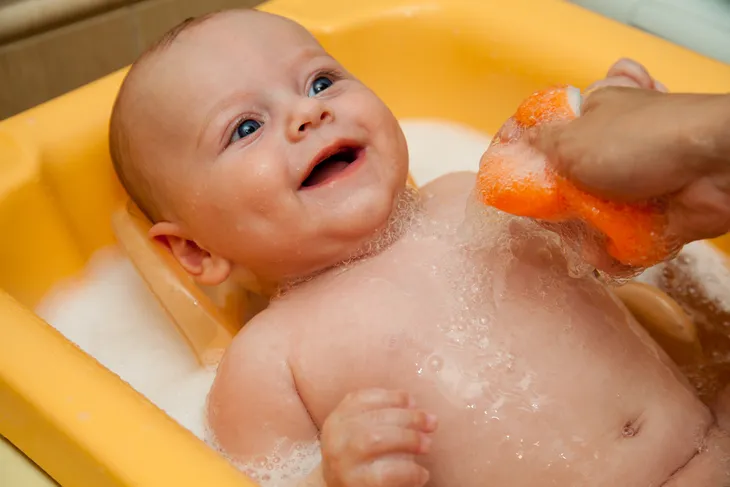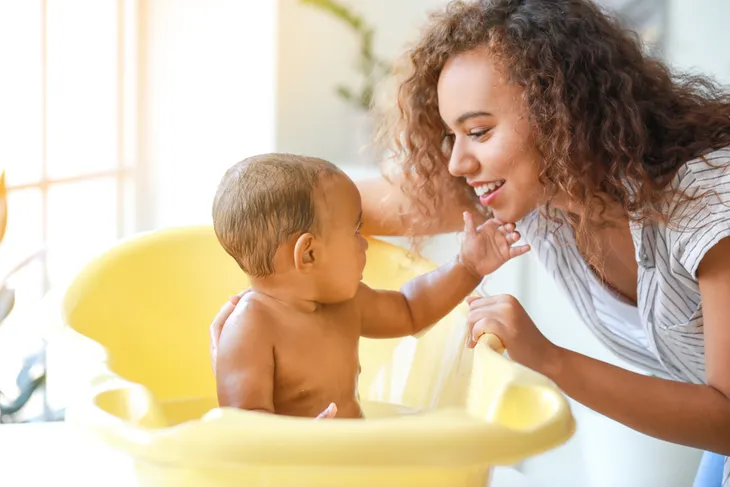When it comes to jumping into the ol’ bathtub for a scrub, the rules are different for adults and babies. While you may enjoy a hot, sudsy tub so you can relax while catching up on your reading, your baby’s skin is much more delicate and needs special consideration.
From water temperature, to the type of cleaning products, to frequency, your baby will have the healthiest skin if you learn what it needs and what it doesn’t need. Here are six things to know about bathing your newborn or toddler…
Don’t Bathe Them Every Night
HealthyChildren.org said a newborn shouldn’t be in the tub more than 3-times per week. That’s assuming that you clean their diaper area thoroughly between changes to avoid any rashes
Bathing infants too often will dry out their skin, and can also increase the risk of a rashy skin condition called eczema, noted the website. The site recommends using a hypoallergenic moisturizer or even petrolatum ointment after you dry them gently to keep the skin hydrated and smooth.
Avoid Using Soap for Grown-Ups
BabyCenter advises that you should keep away from lathering soaps until your baby is at least a year old. Instead, look for cleansers that specifically say they are intended for babies. On most days, soap is only needed around the buttock area.
The online source also notes that regular soap is designed to lather and eliminate oily body odors, which is not something a baby has to worry about (yet). In fact, you don’t really need to use soap at all (except to clean the hard-to-reach places) until your baby turns a year old.
Use Clear Water Without Suds
You shouldn’t be adding any fragrances or other bath products to the tub to create bubbles (even if your baby loves to pop them). BabyCenter also notes that sudsy water can irritate the urethra (urinary tract), and increase the risk of painful infections, especially in girls.
The water should be straight from the tap, without any additives. Your child may be allergic to products that create suds, and it doesn’t need a bubble bath to relax like you do, so it’s best to leave them out of the equation until they’re older.
Use Warm Water
Babies respond best to warm water, according to the Mayo Clinic. The clinic recommends turning down your water heater to below 120 F to avoid accidentally scalding your baby’s tender skin.
It’s always best to put your hand under the faucet to regulate the temperature as the bath is filling up, and make sure you put a hand in the tub before introducing your baby to ensure it’s not too hot or cold. The clinic said the room should be fairly warm as well, to avoid junior getting a chill when they leave the tub.
Don’t Use Harsh Brushes
Your baby’s skin is delicate; so don’t use any scrubbers or coarse cloths when cleaning them in the tub. In fact, the American Academy of Pediatrics recommends sponge baths only until your newborn’s umbilical cord stump falls off.
If you’re opting to give your baby a sponge-down, you don’t need to fill a bathtub. You just need a warm, flat surface, with a free hand to ensure baby doesn’t roll away during the cleaning. Cover the baby with a towel, exposing only the areas that you’re currently cleaning.
Day or Night
Now, it’s totally the parent’s call if they prefer to bathe baby in the morning or at night. The main priority typically comes down to time.
While you may prefer bath time established as a pre-bedtime ritual because it calms and soothes your child, some parents find that it can excite rather than make a baby sleepy. You may be a parent who finds bathing a baby in the AM a better experience because your child is more alert and playful.
